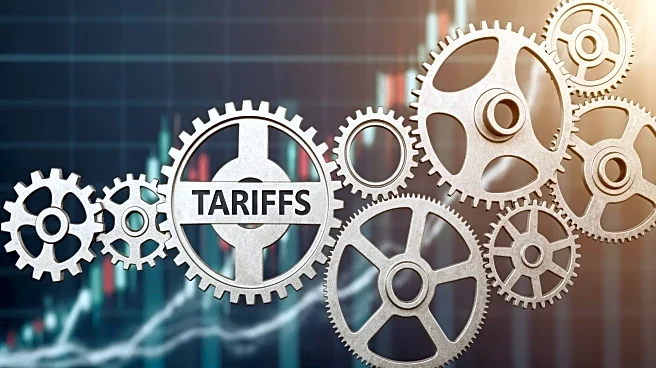What's Happening?
Tariffs are significantly impacting the cost of claims for property/casualty insurers, particularly in the realm of contents claims. According to a white paper from Adjusto, tariffs have increased the replacement costs for consumer goods such as clothing,
electronics, and appliances, which are commonly included in home insurance claims. These tariffs, ranging from 10% to 35%, are passed down the supply chain, ultimately raising the prices consumers pay for these items. This increase in costs is compounded by the severity and frequency of catastrophe claims, making contents claims a source of volatility for insurers. The report highlights that the replacement cost for items like refrigerators, laptops, and sofas has risen by 10% to 15% compared to the previous year, due to tariffs layered on top of existing inflation and product shortages.
Why It's Important?
The impact of tariffs on contents claims is significant for the insurance industry, as it affects the financial stability and operational strategies of insurers. Higher replacement costs mean that insurers must reimburse policyholders for the increased prices, which can erode profit margins and affect customer satisfaction. This situation requires insurers to adapt by utilizing faster data, smarter technology, and closer alignment with actuarial and underwriting teams to manage the volatility caused by tariffs. Additionally, agents are advised to review special limits in coverage for contents in homeowners' and renters' policies to ensure they are adequate in light of rising costs. The broader economic implications include reduced purchasing power for consumers and potential shifts in insurance policy structures.
What's Next?
Insurers are expected to continue monitoring the impact of tariffs on claims severity and adjust their strategies accordingly. This may involve revising policy limits, enhancing data analytics capabilities, and improving customer communication to manage expectations regarding claim reimbursements. As tariffs remain a significant external force, insurers will need to stay informed about changes in trade policies and supply chain dynamics to mitigate risks and maintain policyholder trust. The industry may also see increased collaboration between insurers and policymakers to address the challenges posed by tariffs and explore potential solutions to stabilize the claims environment.
Beyond the Headlines
The ongoing influence of tariffs on the insurance industry highlights broader economic and policy challenges, including the need for strategic adaptation to external economic forces. Insurers must navigate the complexities of global trade policies and their direct impact on domestic operations, which may lead to long-term shifts in how claims are managed and policies are structured. This situation underscores the importance of agility and innovation in the insurance sector, as companies strive to balance profitability with customer satisfaction in a rapidly changing economic landscape.

















